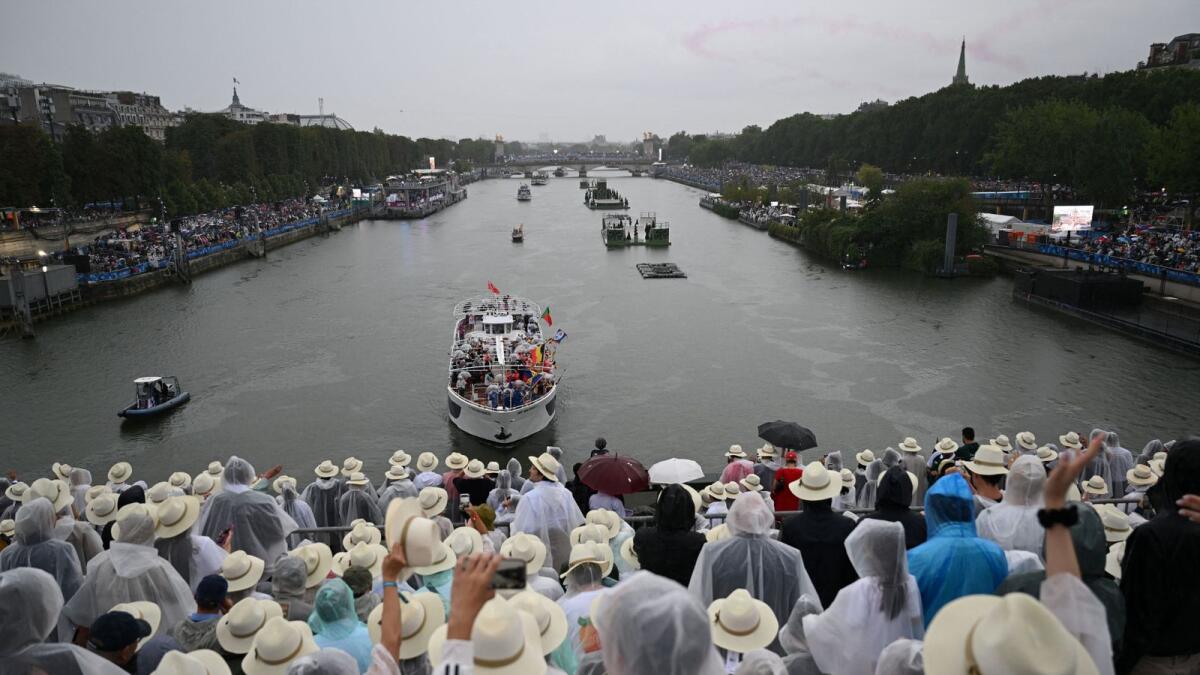The Paris 2024 Olympics faced a setback as the first training session for triathletes was canceled due to pollution in the River Seine. Organizers made a joint decision to scrap the swimming part of the triathlon orientation after tests raised concerns about water quality. Despite earlier tests clearing the river for swimming, doubts remained about its suitability for competition. The health of the athletes was cited as the top priority, prompting the decision to cancel the training session.
Issues surrounding water quality in the River Seine were attributed to recent heavy rain, which can wash untreated sewage into the river. Despite the challenges, organizers expressed confidence that water quality would improve before the triathlon competition scheduled to start on July 30. Contingency plans, such as postponing events or relocating the marathon swimming to Vaires-sur-Marne, were outlined in case water quality did not meet the required standards. Organizers emphasized the importance of ensuring a safe environment for the athletes to compete.
Paris Mayor Anne Hidalgo and Paris 2024 chief organizer Tony Estanguet swam in the Seine on July 17 as a symbolic gesture of confidence in the water quality. However, concerns persisted, leading to the decision to cancel the first triathlon training session. The health of the athletes remained the top priority, and organizers were committed to taking necessary precautions to ensure their safety during the Olympics. Despite the setback, plans were in place to address any challenges related to water quality and to maintain the integrity of the competition.
The joint decision taken by Paris 2024 and World Triathlon to cancel the swimming part of the triathlon orientation highlighted the ongoing efforts to address issues related to pollution in the River Seine. With the health of the athletes being the primary concern, organizers were proactive in assessing water quality and making informed decisions to mitigate any risks. Contingency plans to handle adverse conditions demonstrated a commitment to ensuring a safe and fair environment for the Olympic competitions. By prioritizing athlete safety, organizers showed their dedication to upholding the values of the Olympic Games.
The impact of pollution in the River Seine on the Paris 2024 Olympics underscored the importance of environmental factors in hosting major sporting events. Despite initial efforts to clear the river for swimming, challenges persisted due to factors like heavy rain and untreated sewage. Organizers navigated these challenges by implementing contingency plans and communicating transparently with stakeholders. The cancellation of the first training session served as a reminder of the complexities involved in ensuring water quality standards for aquatic competitions.
In conclusion, the Paris 2024 Olympics faced a setback with the cancellation of the first triathlon training session due to pollution in the River Seine. Organizers prioritized the health of the athletes and made decisions based on water quality assessments. Despite challenges, contingency plans were in place to address any issues related to water quality and ensure a safe competition environment. The cancellation served as a reminder of the importance of environmental factors in hosting major sporting events and the need for proactive measures to safeguard athlete well-being. Through transparent communication and coordinated efforts, organizers aimed to uphold the values of the Olympic Games and deliver a successful event.





















